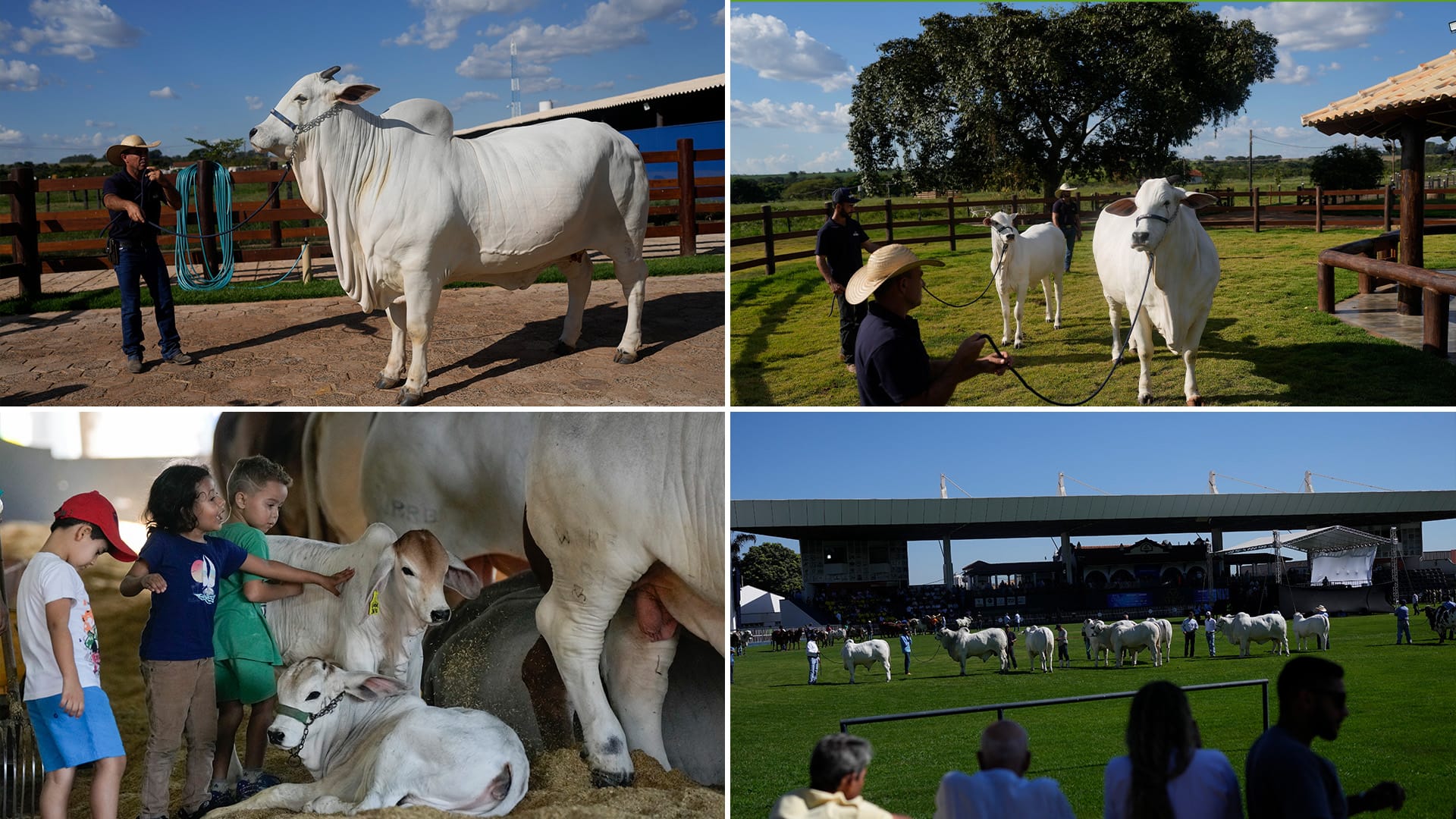02/05/2026

Brazilian supercows are taking over the world
Special Correspondent | Published: 2025-05-19 13:18:05

The master of ceremonies at ExpoZebu, a cow gala in the state of Minas Gerais in south-east Brazil, could see the dilemma. One animal had “elliptical eyes” and an “excellent mammary apparatus”. The other had a delicate neck and a curvaceous rump.
The judges faced “a difficult decision”. When he finally announced the winner of the contest (they plumped for the rump), cowhands shed tears of joy and the crowd erupted with a riotous “yeehaw”.
ExpoZebu is the world’s largest fair of zebu, an Indian strain of cattle whose distinguishing features are a humped back and sagging dewlaps. Brought to Brazil in the 19th century, it proved more resistant to heat and parasites than European breeds.
Today zebus make up 80% of Brazil’s 239m-strong herd of cattle. Their proliferation has helped to transform Brazil from a country where hunger was common to the world’s largest net exporter of food.
Brazil’s agricultural revolution began in the 1970s, when a series of military governments poured money into rural credit and created Embrapa, the state-owned agricultural-research firm. Its scientists developed crops well adapted to tropical weather, in particular a tall, drought-resistant grass from Africa called brachiaria.
This opened the country’s vast interior up to farming and cattle ranching (at the cost of massive deforestation). Breeding programmes then began beefing the zebus up. The average weight of a slaughtered cow in Brazil has gone up by 16% since 1997.
In a country of tropical supercows, crowning bovine beauty queens is a big deal. Buyers flock to ExpoZebu from as far afield as Angola and India to see the finest creatures. They then bid in auctions to buy elite genes from champion cows and bulls. The wealthiest ranchers compete for shares in the cows themselves.
This year’s fair attracted 400,000 visitors. Its auctions raised $35m. The ultimate prize is a cow like Viatina-19 (pictured below), a zebu that fetched $4m in 2023 to become the most expensive ruminant ever sold at auction. She weighs 1,100kg (2,400 pounds), more than twice the average of less distinguished counterparts.
In an auction in November her crown was stolen by Carina, another Brazilian beauty. Each animal has three owners, each with the right to harvest eggs from their cow for four months of the year, for sale to keen breeders. The cows have been cloned to insure their genes.
Famous country singers and powerful politicians roam ExpoZebu, but the cows are the stars (with names like “Genghis Khan” and “Lady Gaga”).
Champions seem aware of their celebrity. When photographed, Viatina appears to straighten her legs, lift her head and peer thoughtfully into the distance. Picture taken, she returns to munching her feed.
Lorrany Martins, a vet whose family co-owns Viatina, says the cow is given daily baths with a clarifying shampoo to keep her hair gleaming white. Her horns are moisturised with sunflower oil and she receives regular pedicures. She is watched over by surveillance cameras and travels in her own lorry while her brethren cram into pickup trucks.
The improvements that Viatina embodies have allowed Brazil to account for almost a quarter of the world’s beef exports. That share is set to expand. The World Organisation for Animal Health, based in Paris, is expected soon to declare Brazil free of foot-and-mouth disease.
The move “will totally change Brazil’s image”, says Luiz Josakhian of the Brazilian Association of Zebu Breeders. Protectionist countries may find it harder to refuse cheap Brazilian beef imports on sanitary grounds. Indeed, exports to the United States are soaring despite President Donald Trump’s tariffs.
Beside the road out of Uberaba, an advertisement featuring muscular cows boldly declares Brazil’s mission: “Better cows for a better world.”
Editor & Publisher : Md. Motiur Rahman
Pritam-Zaman Tower, Level 03, Suite No: 401/A, 37/2 Bir Protik Gazi Dastagir Road, Purana Palton, Dhaka-1000
Cell : (+88) 01706 666 716, (+88) 01711 145 898, Phone: +88 02-41051180-81